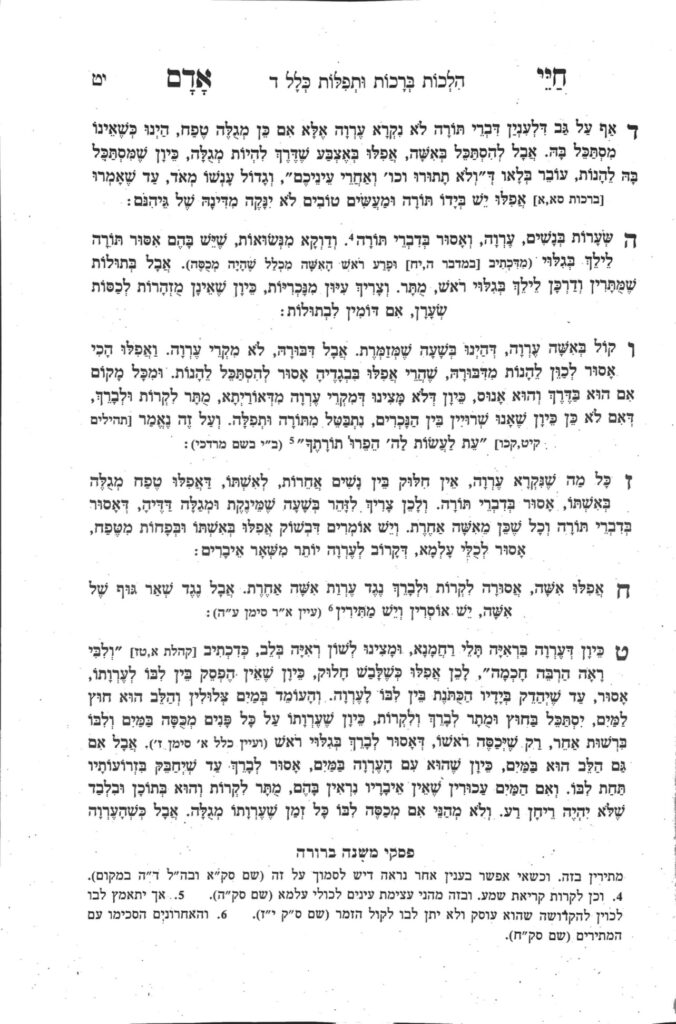Today, we will clarify the issur of lifnei iver in general, and how it applies to our discussion about tznius.
The Torah says lifnei iver lo sitein michshol (Vayikra 19:14). Chazal understand that the pasuk cannot be understood literally, as the Torah should have written sasim, to place, rather than the word sitein, to give, if it was meant to be taken literally. In fact, the rishonim who count the mitzvos, including the Sefer Mincha Hachinuch, are unsure whether placing a physical stumbling block would actually constitute transgressing this issur (it would still be improper and assur due to other issurim). Thus, the Torah is referring to someone who does not have clarity, who is blind in an area, and a person causes them to stumble.
The first question is whether one only transgresses lifnei iver when they want to cause someone to stumble, or whether it applies even when one has no interest in causing another to stumble. The Gemara in Kiddushin says that if a father hits their child when the child is over a certain age, the father has transgressed lifnei iver, because the child might hit the father back. The Chofetz Chaim points out that clearly the father was not in any way trying to get the son to do an aveirah, but we see that when there is a possibility that the child will fall to the aveirah, even if it is not the father’s intention, it is considered lifnei iver. (Even though the child could theoretically hit the father at any point, the chances are significantly increased by the father hitting him, and we see that it is enough to be considered lifnei iver.)
Applying this concept elsewhere, we learn that even when a person is not trying to tempt anyone, when a person presents a possibility in which someone may do something wrong, it is their responsibility. Jews in general need to take into consideration other people’s actions. Part of our responsibility is to take others into consideration, even if the other person is acting improperly.
Another question we need to discuss is whether a person transgresses lifnei iver if the other person does not end up acting improperly. For example, if the child does not hit the father back, has the father still transgressed lifnei iver. The assumption in halacha, as understood from the Gemara, is that the placement of the stumbling block is what causes the issur, even if the other person does not commit the aveirah.
Finally, Rabbeinu Yonah clarifies that besides for causing someone to stumble, there is also an issur to give someone bad advice. For example, if one suggests to someone to buy a certain car, even though they know it is a bad idea, it falls under the issur of lifnei iver. This issur is not limited to aveiros.
If one causes another to transgress an issur derabanan, the Sdei Chemed brings that the person transgresses an issur deoraysa, because it is considered bad advice (not listening to the chachamim) and falls under linei iver.
We will discuss how this applies to the halachos of tznius in the upcoming shiur, be’ezras Hashem.
Summary
- Lifnei iver includes causing someone to do an aveirah, even if one does not mean to do so intentionally and even if the person does not end up transgressing the aveirah. It also includes giving someone bad advice.



